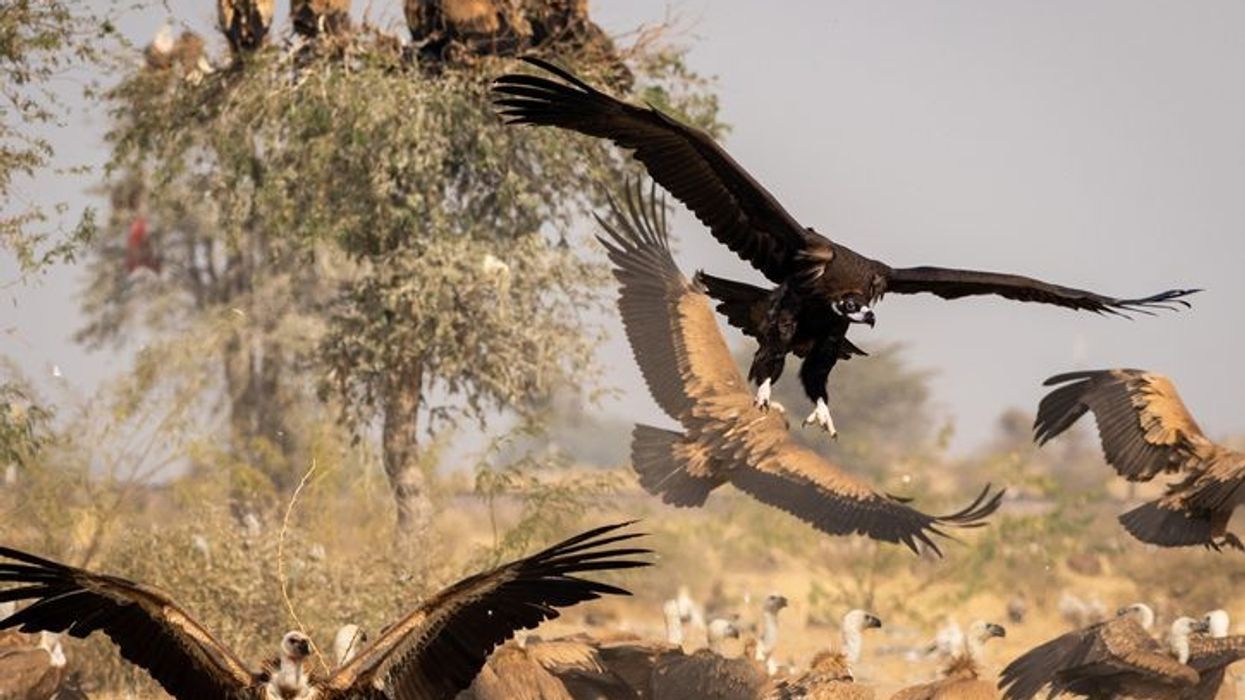A new research suggests that the dwindling population of vultures in India could be the reason behind increase in deaths of humans, which can be as high as 100,000 per year.
The study found that vulture was a 'keystone species', meaning those species whose loss could cause serious problems for the whole ecosystem, in India.
Despite their macabre dietary habits, vultures serve a crucial function by swiftly consuming carcasses of deceased livestock, thereby minimising the risk of disease spread and water pollution caused by alternative disposal methods.
The decline in vulture population corresponds to a surge in risks for humans, such as an increased threat of rabies transmission from scavenging dogs and rats (their numbers increase since they have more food) and the pollution of water sources, as dead livestock are dumped into rivers.
The primary factor that contributed to this decline in vultures is the presence of the painkiller diclofenac in their diet.
Even minute quantities of diclofenac in vulture meals can result in rapid kidney failure and death.
Intriguingly, the rise of diclofenac usage among Indian livestock in the 1990s coincided with the drug's patent expiration, making it significantly more affordable.
The study discovered that in areas densely populated by both vultures and livestock, human mortality rates surged after the diclofenac patent expired.
In the most vulture-friendly regions, this may have led to over 100,000 additional human deaths annually as vulture populations dwindled.
Additional data from India revealed that rabies vaccine sales, feral dog populations, and water quality deteriorated in tandem with the vulture population decline.
While this evidence is circumstantial and lacks the feasibility of experimental trials that would directly prove causation, it strongly suggests a link between the collapse in vulture populations and increased human mortality.
Despite some lingering uncertainty, this evidence underscores the potential consequences of disrupting ecosystems, especially when keystone species are involved.
The unforeseen impact of using diclofenac in livestock herds, eventually leading to human deaths, serves as a stark reminder of the intricate relationships within ecosystems and the risks associated with intervening in them.




